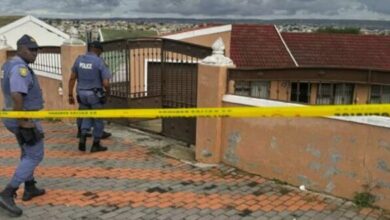Faith Under Fire: Belarus’ Assault on Religious Freedom

In Belarus, where the freedom to follow one’s religion has been reduced to a privilege given at the discretion of an authoritarian government, a terrible change is taking place. The ground-breaking “Faith in Chains” report by Mission Eurasia reveals the harsh realities of a country where religious expression is suppressed to an unprecedented degree.
The data paints a disturbing picture. According to UN human rights officials, more than 70 religious leaders have been compelled to leave their communities and leave their country. New Life Pentecostal Church is one church that has been officially “liquidated” by authorities. It’s an unusually public step in the regime’s typically under-the-radar war against faith. The Faith in Chains report says Catholic, Orthodox, and Protestant Christians in Belarus are “remarkably united in condemning the lawlessness perpetrated by the authorities.”
But they can’t do it alone.
“Over the past few years, the religious situation in Belarus has remained outside the attention of international organizations against the backdrop of brutal political repression by the regime of Alexander Lukashenko,” Mission Eurasia says.
Things are about to get worse. The government now has broad authority to close churches whenever it pleases thanks to a new rule that went into effect in December 2023. Church groups now have a deadline of July 5, 2025, by which they must jump through seemingly impossible hoops of a re-registration process or risk being closed down for good.
The law “criminalizes all unregistered religious activities of communities and individuals,” according to Amanda Barth Gulbrandsen with the International Panel of Parliamentarians for Freedom of Religion or Belief.
The persecution is widespread and systematic. At least 11 priests have been the targets of administrative persecution by authorities in the first few months of 2024 alone. By viewing religious communities as possible risks that need to be watched over and managed, the state security apparatus—including the KGB—has turned religious persecution into a premeditated instrument of political control.
Sergiy Melyanets pastored a protestant church in the country. He and his family were finally forced to flee abroad after he and other Christians gathered in a town square to pray. They were rounded up and taken to the local police station. It’s not uncommon he says but is treated differently in the western press.
“…when someone in Belarus is imprisoned, it doesn’t provoke the same level of reaction as when an entire family is killed by Russian shelling in Ukraine. Even if someone dies in a Belarusian prison, sadly, it is perceived as less tragic than the horrors of war,” he said.
The draconian nature of Belarus’s approach to religious freedom has grown. Other denominations have increasing challenges, while the Belarusian Orthodox Church enjoys unique privileges. International religious ties are essentially severed by the new “Freedom of Conscience and Religious Organizations” law, which mandates that religious leaders be Belarusian nationals who have a permanent presence.
The irony is striking: the government’s stance on religious freedom runs counter to the same principles it purports to uphold in a nation where between 60 and 70 percent of the population identifies as Christian. Reverend Mykhailo Brytsyn and Dr. Maksym Vasin, researchers with Mission Eurasia, have revealed how the state uses religious persecution as a weapon to hold onto power.
Some religious organizations now gather in secret or virtually, while others are removing their social media accounts to avoid being arrested. In addition to documenting this issue, the “Faith in Chains” report makes a pressing plea to the global community. It reveals a country where religious expression is viewed as a threat to be restrained rather than as a fundamental liberty, and faith itself has become suspicious.
Observers say the world needs to see this attack on faith for what it is: a deliberate effort to stifle dissenting opinions and establish control as Belarus tightens its hold on religious communities. In Belarus, the chains of religious tyranny are not merely symbolic; they are becoming more and more severe every day.
Mission Eurasia is asking the U.S. Department of State and the U.S. Commission on International Religious Freedom (USCIRF) to place Belarus on a “Special Watch List” for its crackdown on religious freedom. The State Department has been slow to respond during the Biden administration but observes believe things are about to change.
The USCIRF previously issued a weak statement that it was “troubled” by the new Belarus law.
–Dwight Widaman and wire services






